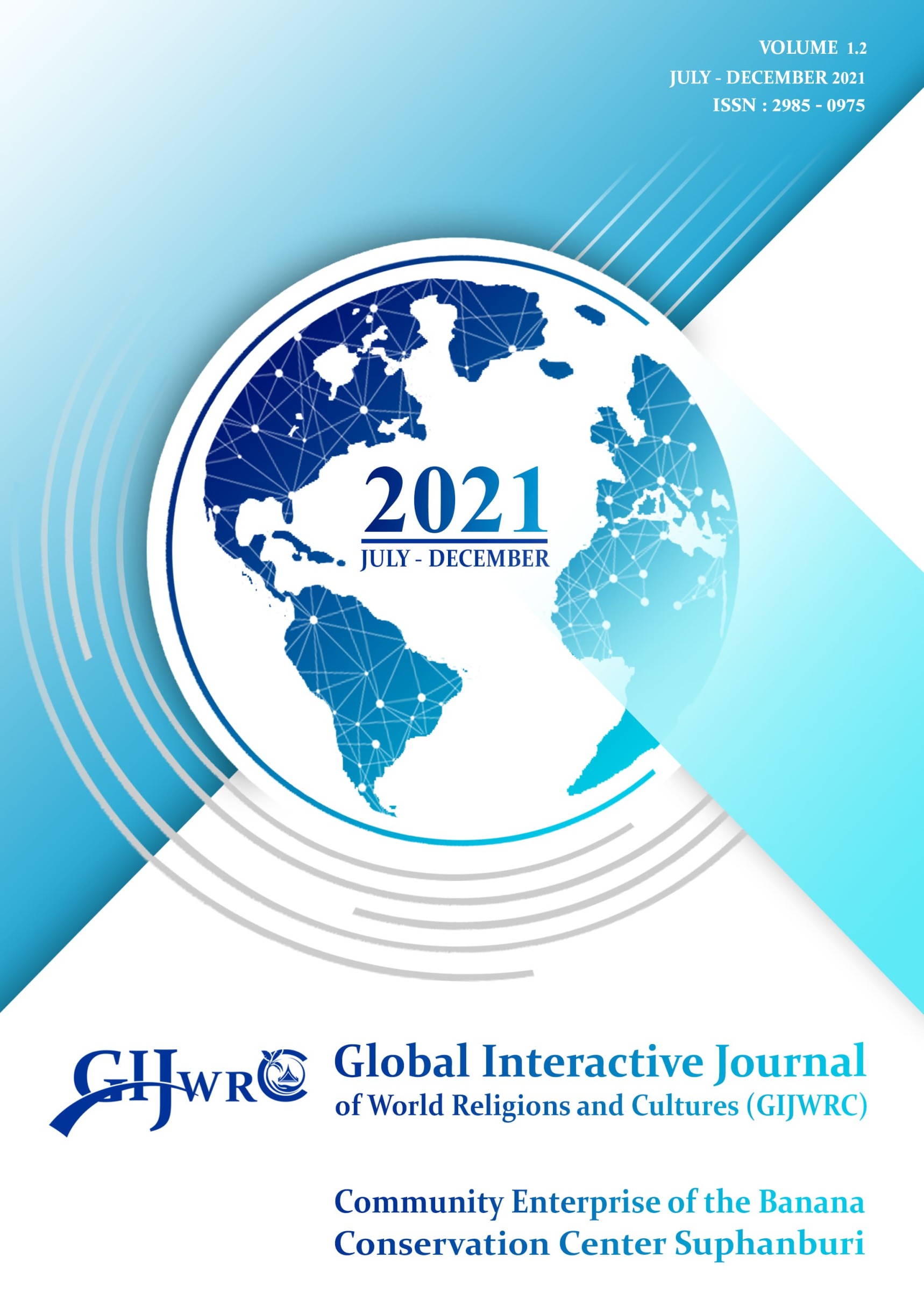PROBITY PROMOTIONS IN PRIMARY SCHOOL LEVELS IN THAILAND
Main Article Content
Abstract
The study was aimed to investigate the practical approaches with the probity principle; the application of the probity principle to promote probity in primary schools; and the approaches to promote probity in Primary Schools. The researcher found that applying honesty to promote probity in the primary school, societies expected the institution to develop probity and pursued its roles and duties to nurture and arouse learners to become the good and the quality members of societies vested with straightforwardness, sincerity, no betrayal thoughts, no cheating and no deceit but honesty. Training should not only restrict in school but also at homes. The probity principle could be intervened in the instruction of every subject. All religions taught their devotees to be good by employing religious rites and liturgies. They emphasized developing human livelihood as humans expected wellbeing, and quality of life. The livelihood science indicated that a quality of life is a perfect life without miseries and sleep with suffering. Had religious doctrines been recognized but failed its implementation; life is then useless. Applying honesty principle to promote probity in primary school demanded truthful straightforwardness to oneself and to others. Individual knew what was right and what was wrong and attachment to honesty was a good thing but paired with mutual respect. Recommendation to policymaking, diverse Dhamma practices responsive to the current phenomenon and students’ daily life should be emphasized in probity promotion in primary schools. In practices, diverse neighboring sources should be explored about probity promotion coherent to class lessons. Studies on the approaches to probity promotion in schools with multiple dimensions, should critically be analyzed.
Article Details
References
Ajchariya Suravorachet (2017). A study on a model of self-probity development among the primary students. Dissertation, Program of Educational Administration, Faculty of Education: Burapha University.
Phra Brahmagunabhorn (PA. Payutto), (2013). Dictionary of Buddhism. Bangkok: Palidhamm Printing House, Dhamma Code No.81, pp.90-91.
Ministry of Education (2000). Education Quality Assurance in Schools of the National Primary Education Commission: The Approaches to Investigation and Development in the Internal Education Quality Assurance System among the Basic Education Schools. Bangkok: the Ladprao Teacher’s Council Printing House, p.2.
Phra Debvedhī, (PA. Payutto) (1993), Buddhism Situation: Turning disasters to development. Bangkok: the Buddhadhamma Foundation, pp.12-20.
Phrakhru Nivitthaviriyakhun Thitaviriyo (Pothavichai), (2016). “The Probity Development of the Charity School Students in the Buddhist Temple: Lamphun Province.” Master Thesis of Educational Administration, Graduate School: Lampang Rajabhat University.
Sompong Promchuay and Vareerat Kaeo-urai (2016), “Activity Model Development to Create Sense of Public according to the Principle of Learning to Serve Societies among the Primary Students.” Journal of Lampang Rajabhat University, Vol.5, Iss.2 July-December 2016, pp.133-146.
Veeraphong Thinsaendee, (2007). Developing Virtues and Morality in the Singh Sa–Ard School, Hassakhan District: Kalasin Province. Master Thesis of Education: Rajbhat Mahasarakham University, pp.1-2.


